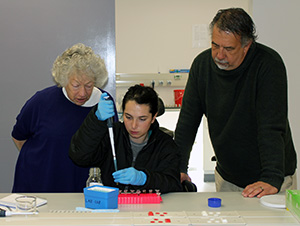Latest News Archive
Please select Category, Year, and then Month to display items
31 January 2018
Photo FNB Varsity Cup
 Lubabalo Dobela, Shimlas flyhalf (with the ball), played a key role in the Shimlas’ win over Tuks in the first round of the 2018 Varsity Cup.
Lubabalo Dobela, Shimlas flyhalf (with the ball), played a key role in the Shimlas’ win over Tuks in the first round of the 2018 Varsity Cup.
The Shimlas made a huge statement in their opening match of the 2018 Varsity Cup when they defeated last year’s champions at the Tuks Rugby Stadium in Pretoria.
The Free State students won the encounter against Tuks by 19-17 on Monday.
Tuks, who beat Shimlas twice last year, first in the group stage by 65-19, and then by 28-21 in the semifinals, were regarded as the hot favourites. The match was played in wet conditions which many thought would suit the home team better.
Determination carries team to win
But a young and inexperienced Shimlas team with 11 players making their debut in the competition proved that big hearts and guts count for just as much. It was only their third win in Pretoria in the 11th year of the competition and their second victory over Tuks since 2012.
As expected, both teams tightened up their approach. Shimlas struck back from a 0-5 deficit soon after the first strategy break as big and speedy wing Francois Agenbag stormed down the touchline to score a seven-point try. Flyhalf Lubabalo Dobela was on hand to convert and hand his team a 9-5 lead at the break.
Flyhalf stars in debut
The Shimlas extended their lead within five minutes of the restart as flank Benji Janse van Vuuren crashed over in the corner for a converted try. Dobela, one of the debutants who was named Player that Rocks (Player of the Match), controlled the match like a seasoned veteran. Apart from two difficult conversions from the touchline, he also slotted a penalty goal.
Monkey research attracts international attention
2016-07-11

Prof Trudy Turner from the University of
Wisconsin-Milwaukee and Prof Paul Grobler
from the Department of Genetics at the
University of the Free State, together with one
of the students researching monkey genes.
Photo: Siobhan Canavan
For this year’s Summer School programme, Prof Paul Grobler, from the University of the Free State Department of Genetics focuses on research about the conflict between monkeys and humans in areas where monkeys are regarded as problem animals.
Global expert part of research
This year, Prof Grobler is hosting a group of students and lecturers from the United States of America (USA). The group includes Prof Trudy Turner from the University of Wisconsin-Milwaukee (UWM), a global expert on vervet monkeys. She has been working with the Department of Genetics at the UFS for the past fifteen years, and has also been appointed as an Affiliated Professor in the department.
“The Summer School programme is an opportunity for the American Primatology students to gain practical experience in Africa,” says Prof Grobler.
International interest in Summer School
This year’s Summer School programme involves four lecturers and nine students. The lecturers are from the University of Wisconsin-Milwaukee (UWM), the University of California, Los Angeles (UCLA), Boston University, and Central Washington University.
“We use the genetic information to determine
how monkeys historically infiltrated the
different areas in South Africa.”
This year’s focus is on the genetic structure of the monkeys in South Africa, and research that is being done on the differences and similarities in monkeys from different areas. “We use the genetic information to determine how monkeys historically infiltrated the different areas in South Africa,” says Prof Grobler.
Local nature reserve acting as host
The group will perform field work, including observing monkeys in the Soetdoring Nature Reserve, as well as laboratory work in the department, where they will be assisted by two laboratory technicians.
Two years ago, Prof Grobler and his department tested this idea on a smaller scale, and now they hope to make this a regular event.